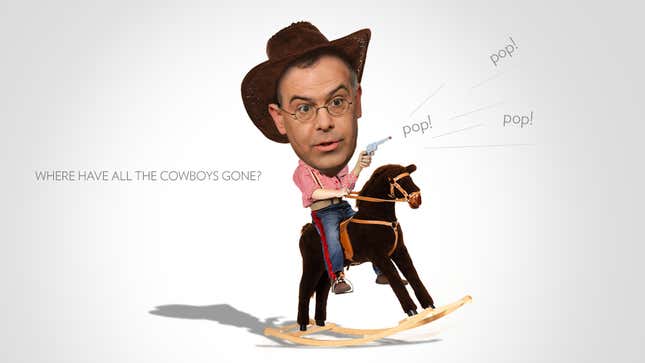Men Need Saving Too, Says Middle-Aged White Man
Latest

David Brooks, known recently for rewriting the work of one of his college students and expressing that in his humble opinion, the Egyptian people aren’t ready for Democracy, has chosen to yet again comment on something that means nothing. His most recent column is devoted to The New Problem That Has No Name: the plight of today’s men.
Brooks uses half of his allotted and coveted New York Times columnist space to recap The Searchers, a 1956 western by John Ford labeled by many as the greatest movie of all time (what, have they never seen She’s the Man?). The movie is about a man who travels across the American West in search of his niece, who has been abducted. But to Brooks, it is a grave metaphor for the death of true masculinity and the suffering that American men have felt due to current economic struggles:
Over the past few decades, millions of men have been caught on the wrong side of a historic transition, unable to cross the threshold into the new economy.
Oooh my interest is piqued! Tell me more about this “threshold.”
-

-

-

-

-

-

-

-

-

-

-

-

-

-

-

-

-

-

-

-

-

-

-

-

-

-

-

-

-

-

-

-

-

-

-

-

-

-

-

-








































